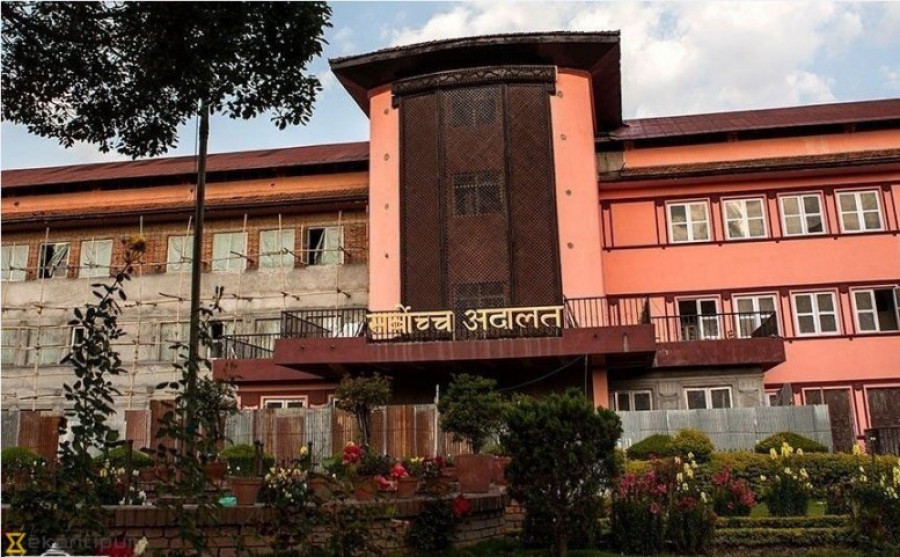Editorial
Court on trial
The judiciary must ensure its independence so that it remains loyal to the citizens and not the powers that be.
Chief Justice Cholendra Shumsher Rana was on Sunday forced to reconstitute the five-member Constitutional Bench based on the seniority of the justices to hear the writ petitions filed against the May 21 dissolution of the House of Representatives. This comes on the heels of an outcry in the legal community after senior advocates questioned the impartiality of the bench, which included justices Bam Kumar Shrestha and Tej Bahadur KC. Rana rightly relented on his previous decision of appointing junior justices on the bench.
On Sunday, the top court saw yet another drama when Attorney General Ramesh Badal, who is defending Oli’s House dissolution decision, questioned the impartiality of the bench with justices Deepak Kumar Karki and Ananda Mohan Bhattarai on it. The drama does not seem to be ending anytime soon, delaying the judicial process itself.
The fact that the constitutional bench tasked to consider the constitutionality of the House dissolution has been questioned implies a crisis in the legitimacy of the judiciary itself. This episode has exposed how the independence of the judiciary has come into question of late. That the judiciary itself has to prove its independence and impartiality, which are its innate characteristics, is alarming.
The relentless attack by Prime Minister KP Sharma Oli on the democratic process has led to a prolonged political crisis, leaving the country unable to fight the deadly coronavirus pandemic and taking the focus away from an economic downturn. At a time when the entire country should have been working towards keeping the pandemic in check and resuscitating the economy, the top leadership has been embroiled in one political tussle after another. All eyes are now on the Supreme Court and people hope it stands fast and independent. Amid a serious political crisis the country is facing, the judiciary is the last bastion of democracy.
While some of the arguments against the constitution of the constitutional bench are frivolous, some others hold merit and need to be taken seriously. A Supreme Court constitutional bench, or any judicial institution for that matter, should maintain utmost independence and impartiality to benefit the citizenry. Judicial independence does not only encompass institutional independence of the judiciary, including in the assignment of judges to cases, but also the adjudicative independence of individual judges. The individual interests of justices should in no way find a space in such institutions.
The legitimacy of the judiciary is contingent upon the trust citizens put in its functioning. Even a semblance of partiality on the part of the justices risks bringing into question the impartiality of the entire institution. Even one instance of partial behaviour from one single justice risks putting the legitimacy of the judiciary at stake. Justices are bound not only by the law but also by conscience and ethics. They are, therefore, expected to leave partisan interests behind for the sake of the ideals of justice.
As the country awaits with bated breath the decision of the Supreme Court on the constitutionality of the House dissolution, it is time for the judiciary to rise to the occasion, fulfil its responsibility towards the people judiciously, and continue to maintain public legitimacy.




 10.12°C Kathmandu
10.12°C Kathmandu













